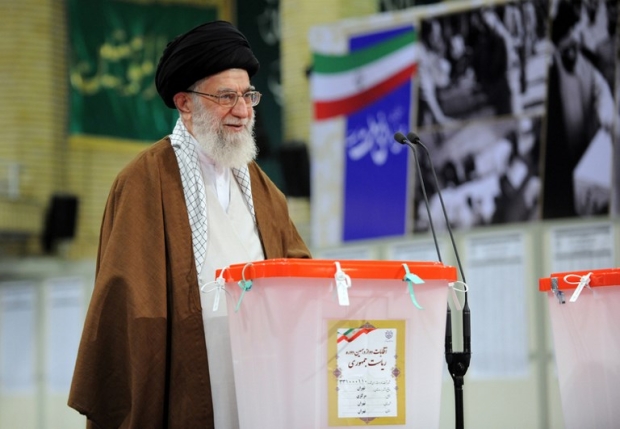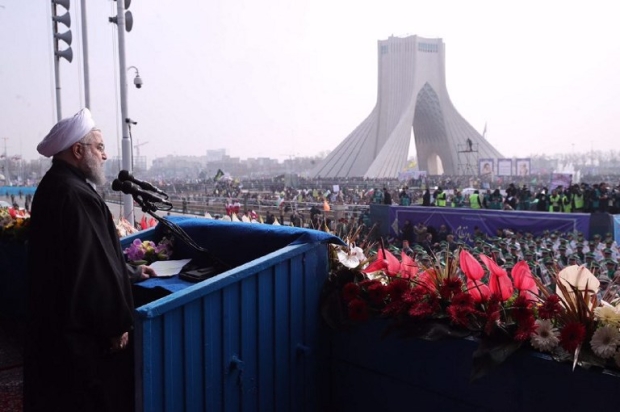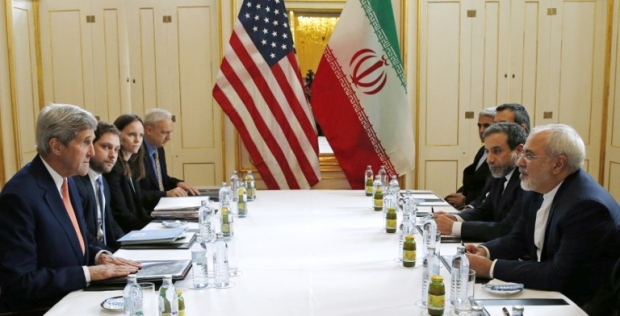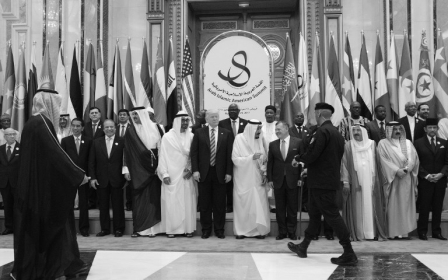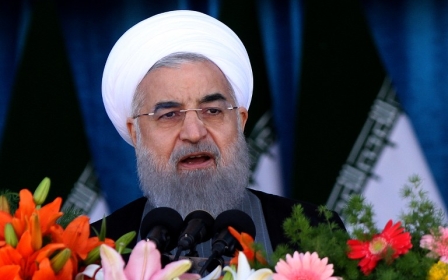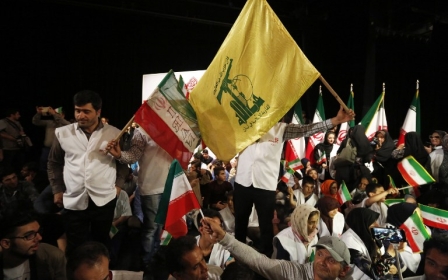Decoding Iran's 2017 presidential election
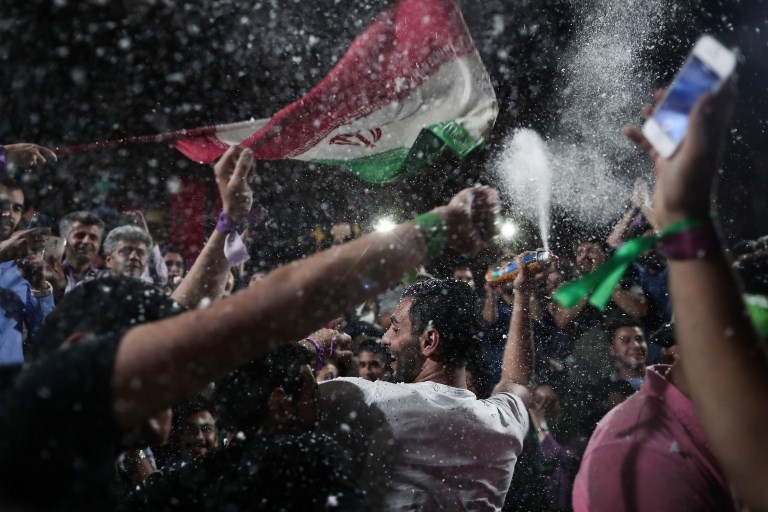
In the end, Iran’s 19 May election became a competition between the incumbent, centrist president - a staunch proponent of the free market and a supporter of better relations with the world, including the US - and the conservative cleric, Ebrahim Raisi, an apprentice and follower of Iran’s supreme leader, Ayatollah Ali Khamenei.
Raisi made his career in Iran’s judiciary, holding senior posts in one of the main conservatives’ fortresses. His resume lists issuing execution orders for thousands of political prisoners over a span of two months in 1988 as a member of the four-person "death committee".
During the election, Rouhani became the target of an orchestrated attack by the conservatives/hardliners, who dominate the establishment. Ayatollah Khamenei led the assault with harmonious support from Iran’s Revolutionary Guards (IRGC) and numerous media outlets in the IRGC and conservative camp's control, which not only relentlessly supported Raisi, but also ran a deafeningly negative campaign against Rouhani.
But maybe the most destructive anti-Rouhani campaign propaganda came from the state TV and radio, the country's only broadcaster.
A supreme attack
Ayatollah Khamenei began intensifying his criticism of the Rouhani administration’s performance from the beginning of the current Iranian new year on 20 March.
"The performance of the administration in 1395 (the Iranian last calendar year) fell way short of expectations," he said during a new year address.
He then took a clear position against the unrevolutionary Rouhani administration – characterised as a moderate/pragmatic – while expressing hope that a revolutionary team would manage the country’s affairs. “If the management sticks to religious values and is revolutionary and efficient," he added, "every problem could be resolved … and, God willing, this will happen.”
In the heat of the election campaign, Ayatollah Khamenei raised the seemingly far-fetched issue of how the Islamic Republic of Iran will not surrender to UN Scientific and Cultural Organisation's (UNESCO) 2030 Agenda for Sustainable Development. The document is a non-binding guideline that targets education standards.
He accused the administration of signing the agenda and beginning “to carry it out secretly. … I declare it is not, by any means, permitted”. It is believed that Khamenei’s opposition stems from the document’s emphasis on gender equality.
Immediately after Khamenei’s statements, the conservatives launched many attacks, hammering Rouhani and his administration. They argued that Rouhani’s signing of the document was evidence of his unIslamic, pro-Western beliefs.
According to Rouhani, during the election his opponents also mobilised a large number of young clerics and sent them to villages propagating that Islam would be in danger were he to win re-election.
Rouhani's risks
To confront this powerful flood of assaults, Rouhani ran an extraordinary, and in some ways extremely risky, campaign.
He fearlessly and openly adopted an anti-establishment position. In a glaring example close to election day, in one of his rallies, he assailed not only Raisi, but also the judiciary as a whole.
"The people will say 'no' to those who over the course of [the last] 38 years knew of nothing but execution and imprisonment,” he said.
His statement shocked millions of Iranians and was widely circulated on social networks, both by his supporters and opponents. The remark even targeted Khamenei, who appoints the top judiciary officials, and called into question the policies of the establishment towards dissent since the time of the Islamic Republic's inception in 1979.
In a fiery speech in Mashhad, Alamolhoda’s stronghold, Rouhani said: “You (ultra-conservatives) want to manage the country? Why did you attack the Saudi Arabian embassy (in Mashhad in 2016)? Do you want to run the country by igniting fires here and there?”
Turning to the IRGC, believed to control one-third of the Iranian economy, Rouhani next said, “You want to have economic activity? You want to have companies? Fine. Leave some space for people.”
Despite the fact that every poll showed that the economy was the primary concern among voters, Rouhani's campaign risked focusing on non-economic issues
Attacking his rivals on 7 May, he remarked, “Those who cut tongues and sew lips are talking of freedom of expression and criticism. Your only expression in recent years has been the word ‘prohibition’: prohibition of pens, prohibition of images.”
The state-run TV and radio that are run directly under the supervision of Ayatollah Khamenei were also not immune from Rouhani’s open attacks. “This media is captured by a political gang. … We will go to ballot boxes to break this monopoly.”
Another risky aspect of Rouhani’s campaign was its focus on non-economic issues, despite the fact that every poll conducted in the country showed that recession, unemployment, and the economy overall was the primary concern of much of the population.
Ignoring the polls and his rival's campaign, which focused on fighting inequality and corruption and tripling cash handouts to the needy, Rouhani chose "freedom, security, and progress" for his campaign motto.
His campaign capitalised on the demands of the middle- and upper-middle class urbanites who are overwhelmingly opposed to the conservative reading of Islam. Surprisingly - and contrary to many observers’ opinions - Rouhani’s strategy of abandoning economic issues and supporting low-income Iranians worked for him (although he published an economic plan stressing job creation).
Bumpy road ahead
The outcome of the election indicates that Rouhani’s approach – opposing the deep state and its bastions – was successful in winning the race in a landslide victory. In Tehran alone, Rouhani beat Raisi by 2.5m votes.
Nevertheless, Rouhani has a bumpy road ahead over the next four years.
The hardliners, aiming to bring Rouhani and his team to a deadlock, will use all the means at their disposal to sabotage relations between Iran and the West
First, the 16m votes (almost 40 percent of the votes) provide Raisi with an opportunity to actively oppose Rouhani’s administration. There are discussions regarding the creation of a shadow cabinet in Rouhani’s camp, which would be a first in Iran's history.
Second, Iran’s foreign policy is nothing but a reflection of its domestic politics. The hardliners, aiming to bring Rouhani and his team to a deadlock, will use all the means at their disposal to sabotage relations between Iran and the West, thus preventing him from attracting foreign investment. Wrecking the nuclear agreement between Iran and the group of six world powers will be their first target.
The Revolutionary Guards need only intensify their ballistic missile tests with the provocative words “Israel must be wiped out” written on their missiles, as they did during Barack Obama's time. The rest would fall into place.
If Trump fails to extend the sanction waivers – and more likely, if he expands them - the nuclear agreement would collapse, and it would not take long before Rouhani finds himself on a slippery slope.
- Abraham Nematzadeh is a political analyst focused on Iran.
The views expressed in this article belong to the author and do not necessarily reflect the editorial policy of Middle East Eye.
New MEE newsletter: Jerusalem Dispatch
Sign up to get the latest insights and analysis on Israel-Palestine, alongside Turkey Unpacked and other MEE newsletters
Middle East Eye delivers independent and unrivalled coverage and analysis of the Middle East, North Africa and beyond. To learn more about republishing this content and the associated fees, please fill out this form. More about MEE can be found here.



